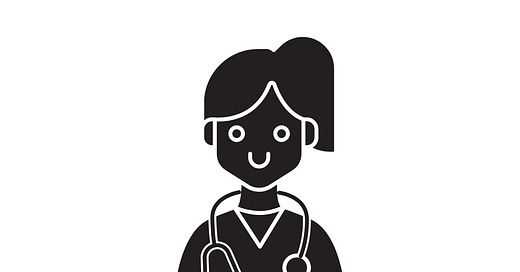How Making Student Loan Payments During Residency Can Get You Free Money and a Tax Deduction
How the New SECURE 2.0 Tax Provision Helps Residents Save More
I Was So Broke When I Was a Resident
My emergency medicine (EM) residency salary was barely enough to pay rent in OC, buy groceries, and occasionally treat myself to BCD Tofu Soup after overnight shifts in the ER.
Back then, my residency offered an employer match if I contributed to my 403(b) retirement plan (which is similar to a 401(k)). But I was so broke that I didn’t contribute anything—meaning I couldn’t take advantage of the employer match.
What Is an Employer Match?
In a sense, it’s free money with one condition—you gotta contribute money to your retirement account, and your employer (i.e., residency) will match your contribution. If you don’t put in any money, you lose out on the free money.
For example, assume your salary is $80,000. If your residency offers a 5% match, that means they will contribute up to $4,000 of free money (5% of $80,000)—as long as you contribute $4,000 to your retirement plan.
For me, I had six-figure student loan debt. I chose to make student loan payments to take advantage of tax benefits (which gave me up to $2,500 in deductions), instead of contributing to my retirement during residency.
As a result, I missed out on my employer’s matching contributions.
But now, things are different.
How SECURE 2.0 Helps Residents Get a Retirement Match
With the new SECURE 2.0 provision, when residents make student loan payments, their employers can count those payments as if they were contributions to their retirement plan—and provide an employer matching contribution to their 403(b).
That means if you pay $4,000 toward your student loans, your residency program may deposit $4,000 (5% of your $80,000 salary) into your 403(b) as an employer matching contribution—just as if you had contributed $4,000 to the plan!
Since this provision is relatively new, your residency program may not offer this benefit—it’s optional. So, ask your program director if they provide it.
Conclusion
If your residency program offers this benefit, take advantage of it by making student loan payments (although it may be challenging on a tight resident’s salary). Not only could it provide free money in the form of an employer match, but it could also give you a tax deduction (up to $2,500 in student loan interest deductions), which reduces your tax liability and puts more money in your pocket.
Don’t leave free money on the table—ask your residency program if they offer this benefit!
Disclaimer
One of my heroes, Mel Herbert, MD, founder of EM-RAP, may have once said:
“Don’t just do something, stand there.”
That would be my advice to you after reading my blog—stand there (for now) and don’t do anything (yet).
Why?
While I am a tax professional, I am not your tax professional. I do not know your particular situation, and tax matters can be complex. What works for one person may not work for another.
Before taking action, assess your situation and consult with your tax professional to ensure any strategy aligns with your specific circumstances.




